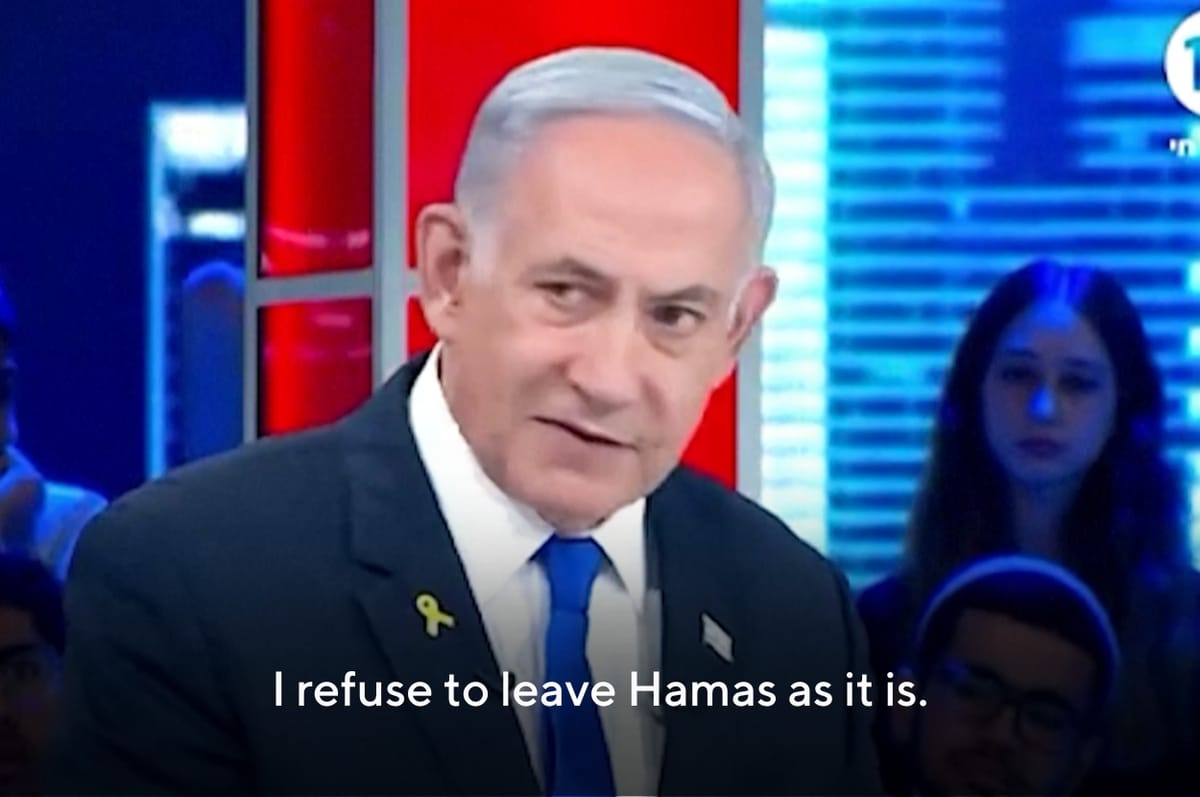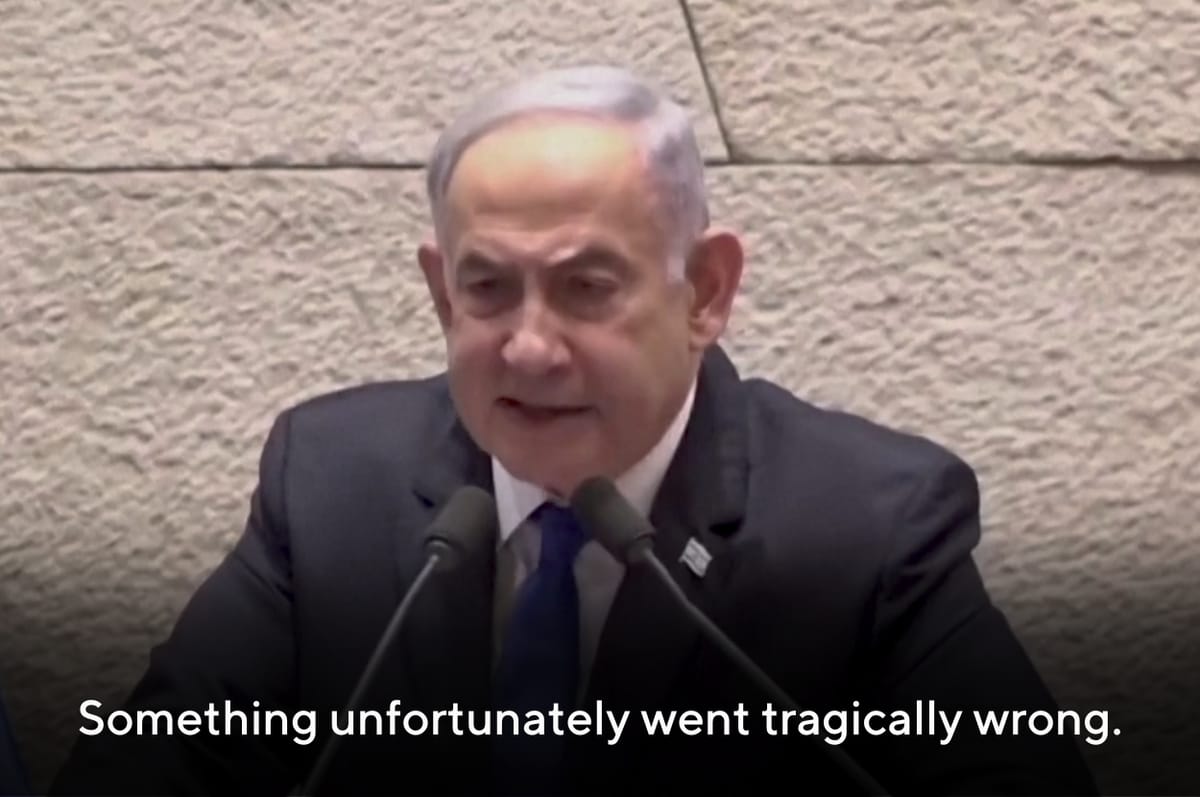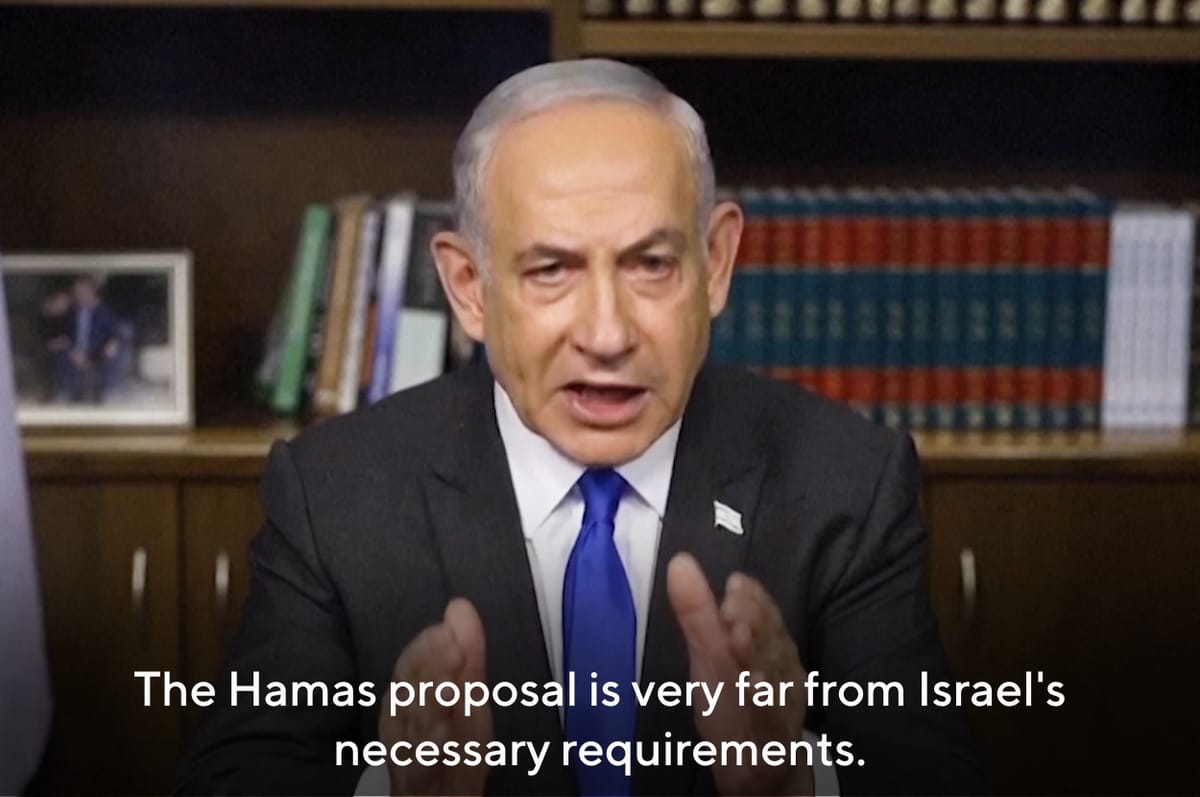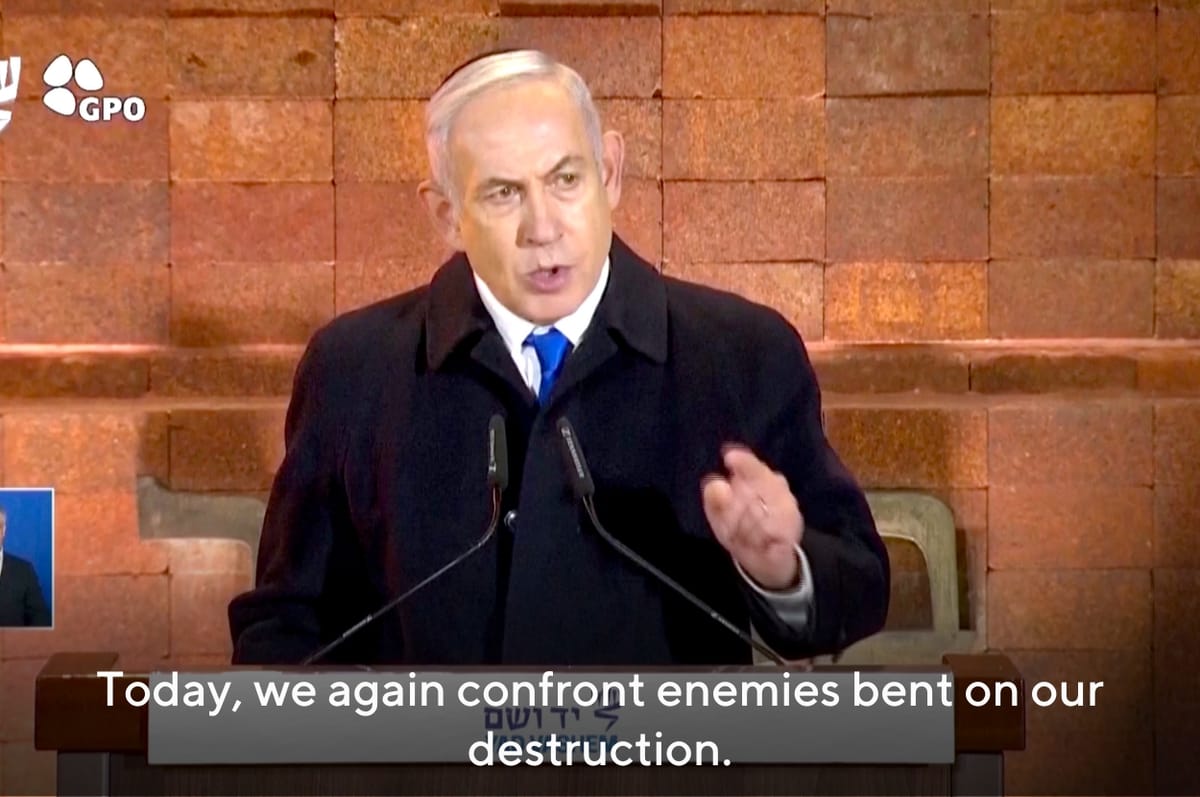Netanyahu Has Rejected The Permanent Ceasefire Deal The US Said He Had Previously Accepted
Netanyahu said it was "no secret" that he would agree to a "partial deal" that would secure the return of some of Israel's hostages, but the country was committed to continuing the war after the deal to "complete its mission."

Israeli prime minister Benjamin Netanyahu has rejected a deal for a permanent ceasefire in Gaza that was presented by the US.
Appearing on an interview on Sunday, June 23, on Israel's Channel 14 TV – his first Israeli media interview since Oct. 7 – Netanyahu said that it was "no secret" that he would agree to a "partial deal" that would secure the return of some of Israel's hostages, but the country was committed to continuing the war after the deal to "complete its mission."
"If there is an agreement, it will be an agreement according to our terms, and our terms are not to end the war, to leave Gaza, to leave Hamas as it is," he said.
"I refuse to leave Hamas as it is. We need to eliminate it," he added.
Netanyahu's comments stand in stark contrast to those of US president Joe Biden, who announced at the end of May that Israel had accepted a three-phrase deal for a permanent ceasefire which it had put forward itself.
The deal was then endorsed by the UN Security Council, with the US' representative Linda Thomas-Greenfield also saying after that the plan had already been accepted by Israel.
A senior Hamas official later told Reuters that the group had accepted the resolution for the ceasefire and was ready to negotiate over the details.
The official told Reuters that the group reiterated its stance for a permanent ceasefire, Israeli troops withdrawing, reconstructing Gaza and exchanging Israeli hostages for Palestinians held in Israeli prisons.
In the same interview, Netanyahu also said that the "intense phase" of fighting in Rafah is nearly over but added that it did not mean that the war was about to end.
He said after that, Israel will start moving parts of its military north towards the border with Lebanon.
Since it declared war on Hamas, Israel has also been clashing with Hezbollah, a Lebanese militant group which has been backing Hamas, exchanging fire along the Israel-Lebanon border.
″We can fight on several fronts and we are prepared to do that," Netanyahu said.
Netanyahu's comments were met by outrage by the families of the hostages.
The Hostages and Missing Families Forum, which represents the families of hostages, said in a statement that it strongly condemned Netanyahu for walking back from the Israeli proposal.
“This means he is abandoning 120 hostages and harms the moral duty of the state of Israel to its citizens," the group said.
Meanwhile, sources have also told Israeli outlets Haaretz and Walla that Netanyahu's comments have caused "tremendous damage" to the ongoing ceasefire talks.
"Netanyahu made it clear today that he is not interested in the release of all the hostages – the demand he himself makes to Hamas – and is not willing to provide the compensation that Hamas demands," one source told Haaretz, Middle East Eye reported.
In response, Hamas said that Netanyahu's latest comments were “unmistakable confirmation of his rejection” of the deal, which was supported by the US and endorsed by the UN Security Council.
Netanyahu then issued another statement from his office saying that Hamas had opposed the deal and that Israel would not withdraw from Gaza until all of its hostages were returned, TIME reported.
More On Israel's Genocide In Gaza









